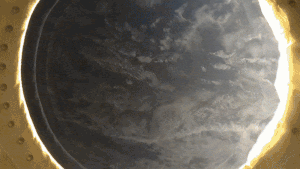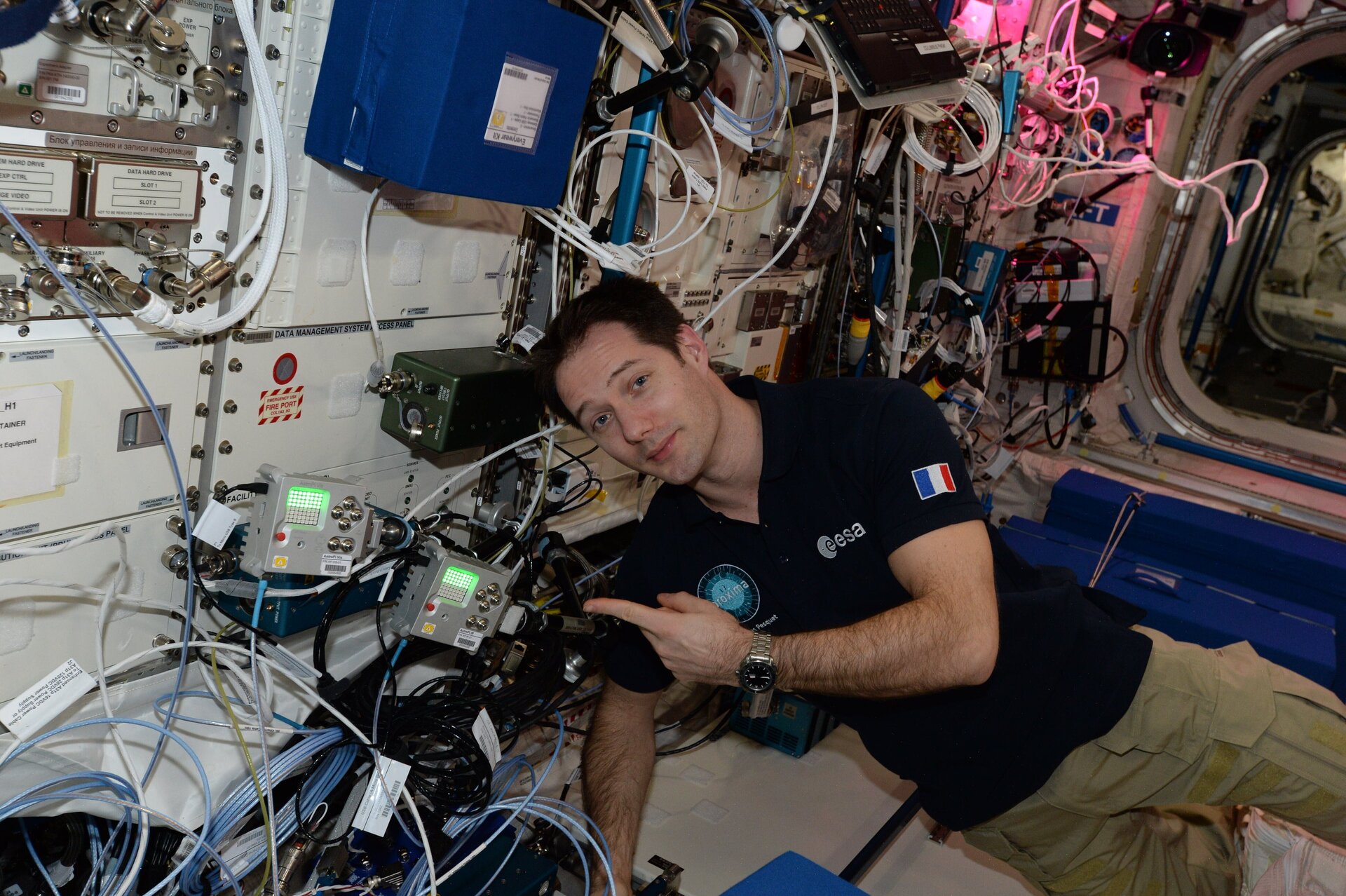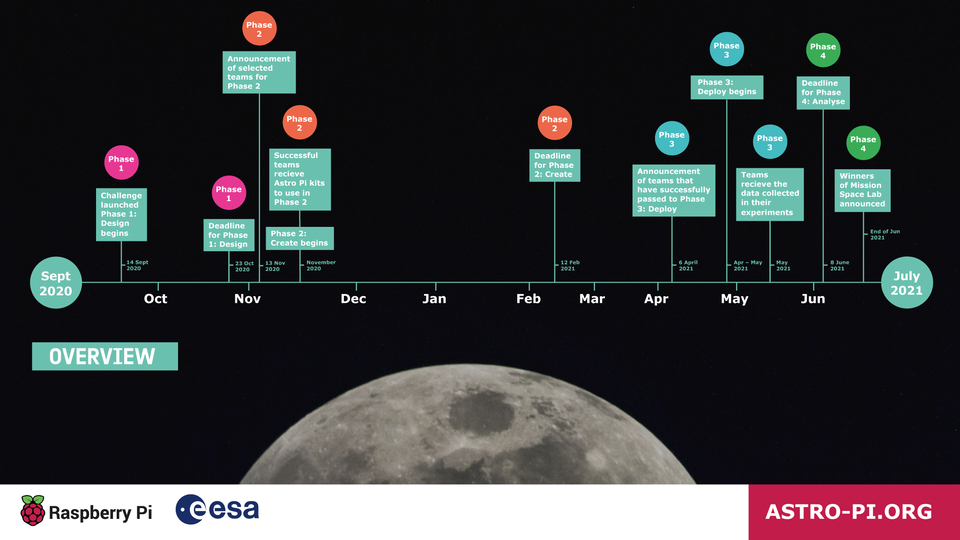232 teams granted Flight Status for Phase 3 of Mission Space Lab 2020-21
ESA Education and Raspberry Pi Foundation are excited to announce that 232 teams participating in this year’s European Astro Pi Mission Space Lab Challenge have achieved Flight Status. That means they will have their computer programs run on the International Space Station (ISS) later this month!
Mission Space Lab gives teams of students and young people up to 19 years of age the amazing opportunity to conduct scientific experiments aboard the ISS, by writing code for the Astro Pi computers — Raspberry Pi computers augmented with Sense HATs. Teams can choose between two themes for their experiments, investigating either life in space or life on Earth.
Life in Space
For 'Life in space' experiments, teams use the Astro Pi computer known as Ed to investigate life inside the Columbus module of the ISS
Life on Earth
In 'Life on Earth' experiments, teams investigate life on our home planet’s surface using the Astro Pi computer known as Izzy. Izzy's near-infrared camera (with a blue optical filter) faces out of a window in the ISS and is pointed at Earth.
Phase 3: Flight Status achieved

During phase 2, that runs from November to February, Mission Space Lab teams write the programs for their experiments in Python. Once teams are happy with their programs, have tested them on their Astro Pi kits, and submitted them to us for judging, we run a series of tests on them to ensure that they follow experiment rules and can run without errors on the ISS. The experiments that meet the relevant criteria are then awarded Flight Status.
The 232 teams awarded flight status this year represent 22 countries and 939 young people, with 30% female participants. 155 teams with 'Life on Earth' experiments and 77 teams with 'Life in space' experiments have successfully made it through to Phase 3.
Spain has the most teams progressing to the next phase (31), closely followed by the UK (25), France (24), Romania (23) and Greece (18).
In the next few weeks, the teams' experiments will be deployed to the Astro Pi computers on the ISS, most of them being overseen by ESA astronaut Thomas Pesquet, who will be flying to the ISS on 22 April on his new mission, Alpha!
In the final phase, running we'll send the teams the data their experiments collect, to analyse and write short reports about their findings. Based on these reports, the ESA Education and Raspberry Pi Foundation experts will determine the winner of this year's Mission Space Lab. The winning and highly commended teams will receive special prizes.
Congratulations to all successful teams! We are really looking forward to reading your reports.



